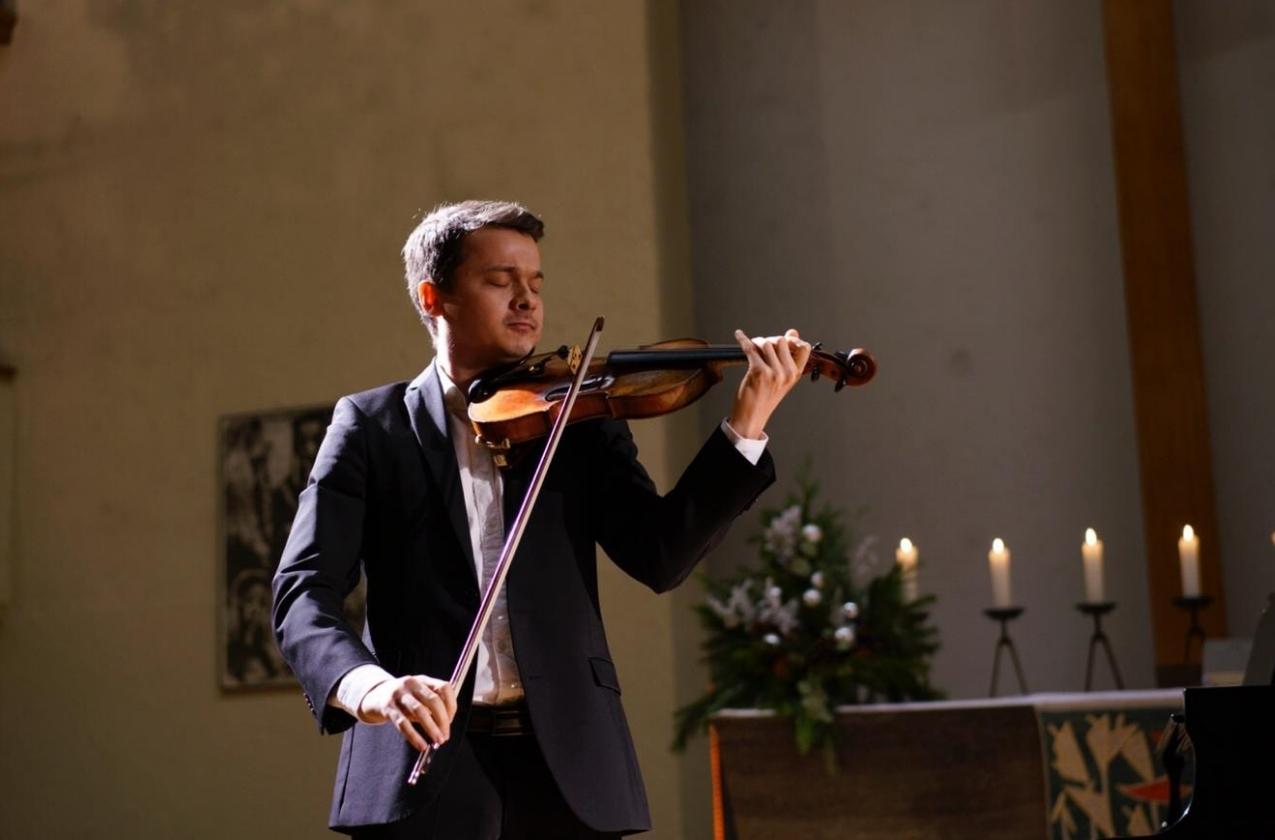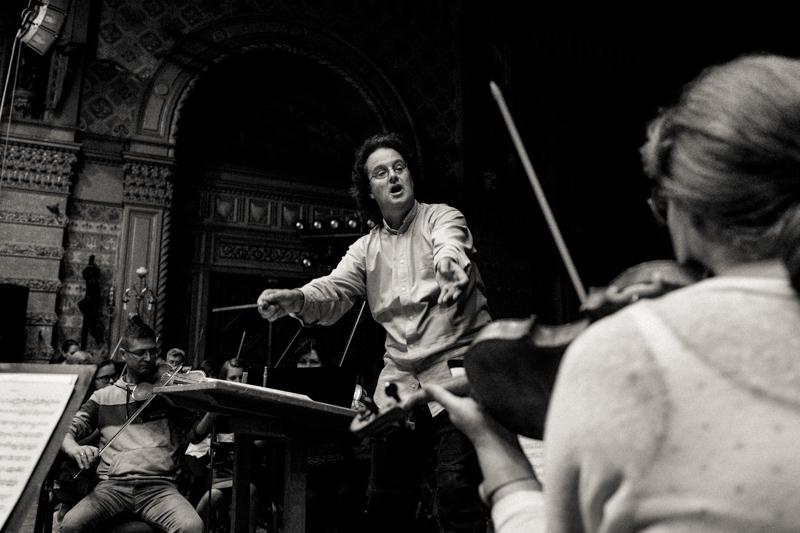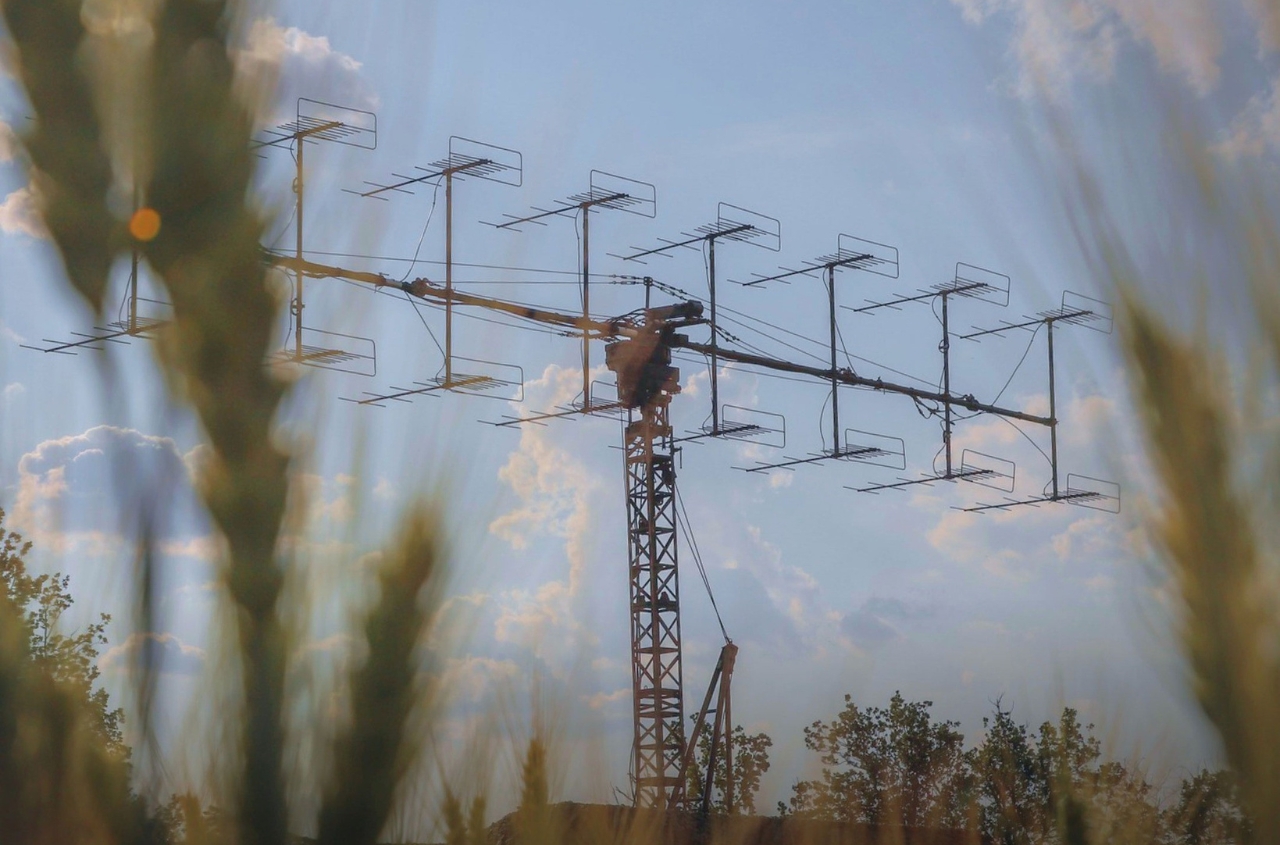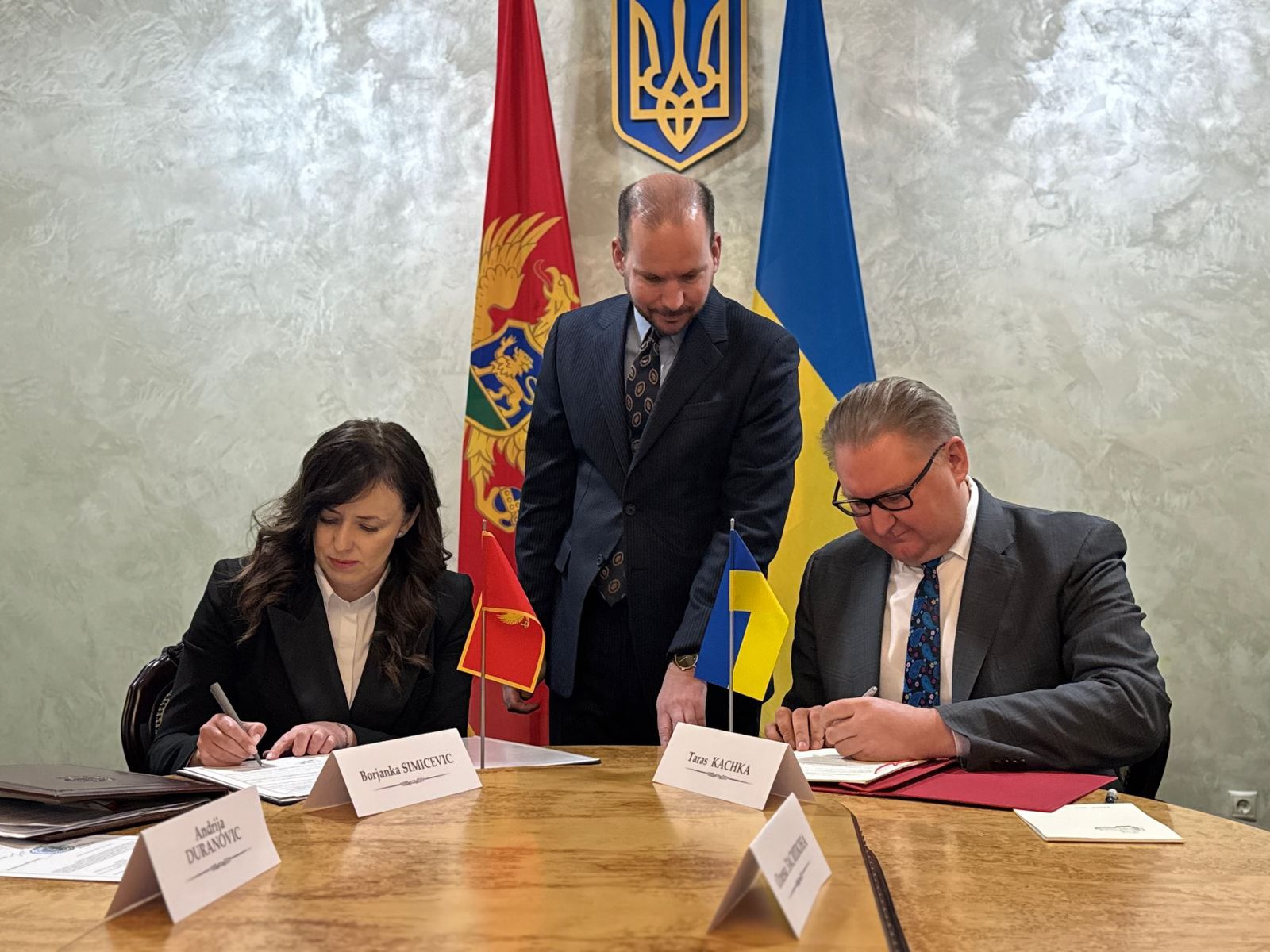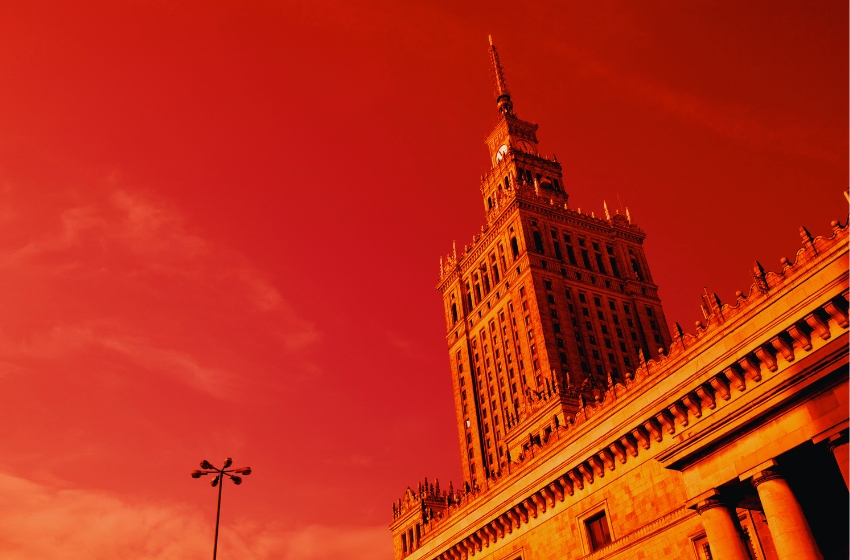We met with Andrey Murza a few days before the start of the Odesa International Violin Competition to ask him about the competition, about Odessa, about modern Ukrainian composers and the violin culture in the world.
Andrii Murza is the winner of several international competitions, including international violin competition named after Julio Cardona in Portugal, Eugen Coca in Moldova and “Art of the XXI Century†in Ukraine. He took part in international festivals in Heidelberg (Germany), Santander (Spain), “Two days and two nights of new music†and “Golden Violins of Odessa†(Ukraine). He performs concerts in the cities of Switzerland, France, Germany, Ukraine, Italy and Spain, where he made his debut at the National Radio of Spain, in which he performed works by Bach, Schubert, Schnittke and Saint-Saens.
During his stay in Europe, Andriy Murza has repeatedly won various awards and grants from cultural foundations, including the Isaac Albéniz Foundation (Madrid), the National Cultural Foundation of Germany (Berlin), the Ottilia Zelba Foundation (Berlin) and the Vladimir Spivakov International Foundation. In 2013, he gave a concert tour in Spain, after which he was honoured to perform before the Spanish Royal Family, where he was awarded an honorary diploma by the Queen of Spain.

Odesa International Violin Competition this year is dedicated to the 150th anniversary of Pyotr Solomonovich Stolyarsky. Thanks to his unique system, he presented the world with magnificent violinists who glorify Odessa with their talents And they started talking about the Odessa school everywhere. In your opinion, this glory still thunders?
I gave myself the answer to this question this year. We asked our participants to make a video presentation about themselves and one of the questions was “what do you know about Ukraine and / or Odessaâ€. To be honest, I did not expect such little information content from the younger generation of musicians. That is, someone knows only Donetsk-Shakhtar, Dynamo-Kyiv. We are not even talking about violinists from post-Soviet countries, since many people know who David Oistrakh is and where he came from. Although, besides David Oistarakh, there are many other important names. After all, this glory is like fire - if it is not maintained, the fire will go out. I see now that the younger generation from Europe, Asia and America, for the most part, have no idea what Odessa is. And who is Pyotr Stolyarsky all the more.
Do they know the names of his students?
Here is just an example of one of the participants from Romania. I was surprised by his answer. Instead of the usual Oistrakh, he called the name Nathan Milstein. An absolutely brilliant violinist, one of the best in the 20th century. Nevertheless, he was named, and not Oistrakh or Elizabeth Gilels. If you answer this question, it is very important to popularise, remind what Odessa is.



Let's start with the fact that Odessa was the first in the post-Soviet space. I mean, there was a specialised music school in Odessa. Then, there was Moscow, Petersburg. And absolutely outstanding students of Stolyarsky, a generation on whom the entire Moscow Conservatory is still based. I mean already the great-grandchildren of the violin department of the Moscow Conservatory; this is all Odessa. And Eduard Grach, and Sergey Kravchenko and many others. It seems to me that it is important to tell the new generation what Odessa is and who Stolyarsky is. Our history, in the history of violin music, is one of the most outstanding on the world stage.

This year we will celebrate the 30th anniversary of Ukraine's Independence. From your point of view, in the violin traditions of Ukraine, has something changed?
Separately about traditions. Everything changes. And adhering to some traditions is not always correct. Some traditions must be preserved, and some must be changed. For example, the performance of some musical works by classical baroque authors. The European style of performance is much different from that of the Soviet Union. Until recently, we continued to play according to the old school, which today is considered old-fashioned, irrelevant and, in principle, not very correct. If we talk about traditions, then the word "tradition" does not quite fit the interpretation of the work. In this regard, we need to change the vector to a European one. And change the entire library.
Now the trend is to play baroque and classics in urtext editions. We have very few such materials yet, but we are trying to change it. We have already donated some sheet music to the Stolyarsky School and the Conservatory.
It is our mission to maintain spirituality. Culture keeps people, forcing us to be people.
Andrii Murza
At the second stage of the competition, children must play a piece by a Ukrainian composer. Tell us more about contemporary Ukrainian composers.
Literally from this competition, we began a tradition that we intend to continue: to write an original piece of music specially for the competition. This is an expansion of the repertoire of Ukrainian music and its popularisation in the world. Each participant must learn this composition and we hope that in the future it will take its niche in the repertoire of many performers. I would say that the modern Ukrainian composing school is now at a fairly good level. Everyone has their own style, there is plenty to choose from. And if you like something specific, you already know who to contact.
As for our composer, this is Alexander Shymko. I personally worked with him, performed his violin concert at the Philharmonic with the National Odessa Philharmonic Orchestra, and this is amazing music. And he was the first to whom I proposed to write a work for our competition, since we know each other, and I was absolutely sure that the fact that he would do it would be worthy. And so it happened. Let's see how the participants will interpret it. Everyone will perform in their own way, naturally. But this tradition is very important, and we will continue it.

Photo: Facebook page of Alexander Shymko
Next year we will turn to another composer to give everyone the opportunity to express themselves. This is also interesting for us. By the way, one of the most prestigious Queen Elisabeth International Music Competition in Brussels has the same tradition. There is even a competition for writing the most interesting music piece. Therefore, many composers from all over the world send their works and the best of them, during the competition itself, is provided to the participants. In just a couple of days, participants must learn it by heart.
65 applications were sent from 24 countries of the world ...
Yep, we didn't even expect such a stir. First of all, this means that more and more people start to know about us. And this is a good international indicator. I know that this is the level of applications for European international competitions, 50-100 applications.
Looking at the world of violin from the outside and from inside, which country / city is currently the most “violinistâ€: provides more opportunities to express oneself, or shows the best violin school.
It's hard to say, because quantity is not always quality. I would name the USA and Germany. The U.S. have made great progress in the level of violin education in the last 10 years. It was, but now especially. The violinists who come from the U.S. now are very high level. Education is at a high level and professors are one better than the other. A very serious level. And Germany, of course, yes! These two countries are now leading the way.
Advice to future contestants on how to better prepare themselves before the performance. Maybe to read a book, take a walk, talk to a friend? How did you cope in your time when you were a participant in international competitions?
Everyone has their own way. Hard to say. Sometimes it is the sum of everything. But, of course, first and foremost, self-confidence. If you are confident in what you are going to do, then this is the level of excitement that then gives a moment of improvisation and inspiration. This is not the excitement in which you forget the text, it is the excitement that inspires. The quality of the contestant's preparation further affects his excitement: positive or negative.
I am still sure that the classics will remain wherever the world turns.
Andrii Murza

Than a little bit more about excitement. In the third round, the contestants will play with the accompaniment of an orchestra led by Hobart Earle. Do you remember your first concert?
I remember (Andrii laughs).
Your smile already says a lot.
I remember my first performance with an orchestra, in Kyiv, I was about 8 years old. It was the National Kiev Orchestra with a performance at the Ukraine Palace. It was the largest concert hall in Kyiv, and this scale and the orchestra, and Vladimir Serenko, the chief conductor - it was very exciting for me. And I still remember about it. These are memories that last a lifetime.

Photo: Facebook page of Andrii Murza
After your numerous performances, and now for the contestants, what is more important after the performance: applause, a satisfied audience, inner peace, satisfaction from your own work?
Everyone knows how well he performed. And even if now would not have an audience due to quarantine, and we will have it now in Odessa, then after the performance everyone feels how well he performed.
Classical music is a world heritage. Do you agree with the statement that today's youth are less and less interested in classical music?
Both in Europe and in the world in general, there are simply different interests. Now there is total digitalization and technology. Of course, the vector has shifted from the spiritual to the technological. I also ask myself one question: now they say "the way they used to play, they don't play like that now". Let me remind you that even 50 years ago there were not so many musicians. There are a lot of performers now. I am still sure that the classics will remain wherever the world turns. Elite direction. At the annual Christmas concert in Vienna, Riccardo Muti said that we are missionaries. Here I absolutely agree. It is our mission to maintain spirituality. Culture keeps people, forcing us to be people.
Imagine that you were entrusted, in some city or a closed society, to completely revive the violin culture, which is either not there or is in a state of decline. How would you start and what scenario would you follow?
If we say that I have all the possibilities, then I would invite the best teachers. If you revive. It is very important that the teacher is in shape. So that he can always go on stage and play any day. This is a worldwide practice. All famous teachers are all concert musicians, in parallel with teaching they have a very extensive concert activity. After all, it is important that the teacher can show what he wants, not only tell.
There are exceptional cases, for example Pyotr Stolyarsky. He was not distinguished by a brilliant game. But he knew how to explain how to put fingers, hand. He was just a member of the group of second violinist players at the Opera House. But, apparently at some psychological level, he could show what is needed from the child.
In general, answering your question, in order to save your budget, it is better to invite immediately those who can show and teach. Love must be instilled. And then contests, festivals, etc. This is a musical life. Of course, there are also examples like Sviatoslav Richter. He did not participate in any competition, and began to study very late in principle. But this is unique.
Then the last question. What is the violin singing about in the hands of Andrii Murza?
My violin always conveys the composer's idea. Of course, each performer interprets the piece in his own way. But that's the beauty of our profession. You put 10 musicians in a row, and they will play each in their own way. Everyone is an individual. Each has its own understanding and interpretation. And the most important thing is that this interpretation is convincing. It may be an unconventional manner, but if it convinces, then it's all right!










